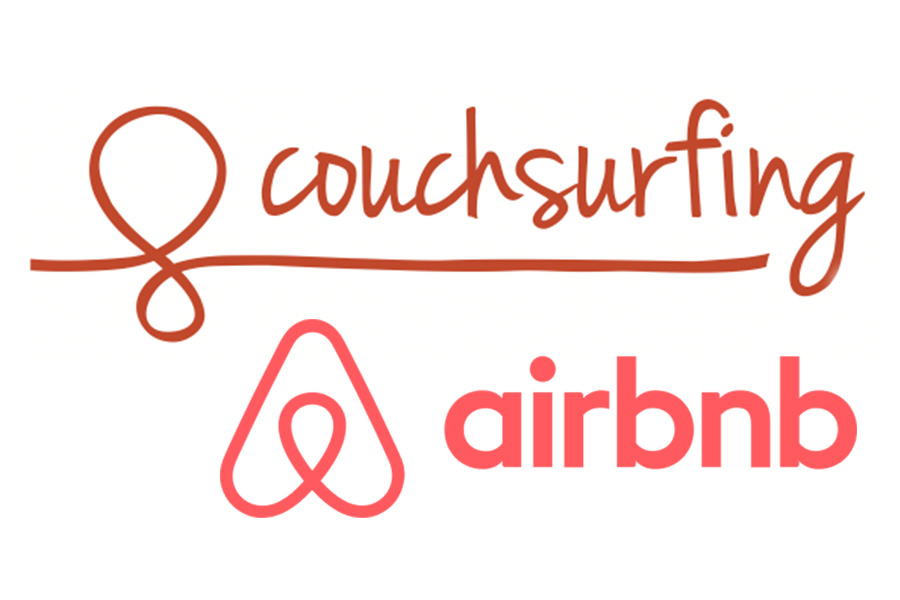Couchsurfing vs. Airbnb: Travelling for Cheap (or Free!)

Airbnb offers low-cost rooms and homes for travelers. But it’s not without its problems, and sometimes the cost is comparable to local hotels. Is it possible to save even more money? Couchsurfing is free to those looking for a place to sleep, but these two sites couldn’t be more different. While Airbnb is a business, Couchsurfing is more of a community. It doesn’t offer the same legal protections you have as a paying customer, but it does offer free lodging, and the promise of meeting interesting people around the world. Which is best for your adventure?
Price
Airbnb is one of the best places to go to get an affordable room for the night (or a few nights). You can often rent entire apartments or homes to yourself for about the price of a hotel stay in the same area. Generally, prices won’t be above $200 per night unless you’re looking for a fantastic view in a touristy area. Rooms can even be as little as $30, which saves quite a bit of money on travel.
Couchsurfing doesn’t cost anything for the guest, although it isn’t uncommon for guests to pay for their food. Sometimes, hosts are kind enough to pay for or provide food, though you should never assume that they will. That said, a host will never charge you just to sleep on their couch, making the total cost for lodging $0.
Safety
Safety is a huge focus for Airbnb since it’s a for-profit business. Guests and hosts have reviews, and too many negative reviews can get the host removed from the site. Additionally, Airbnb encourages communication through their website only. If something goes awry, Airbnb has the whole story in writing – or at least, as much of it as possible.
Couchsurfing offers fewer protections. Like Airbnb, you can (and should) read reviews of hosts, to give you a sense of who you’re staying with. Unlike Airbnb, If you experience a bad situation, all you can do is leave. Since you’re not paying for anything, there’s no action to be taken against an unpleasant host – unless they do something illegal.
Naturally, both sites will have good and bad experiences. But if your Couchsurfing experience goes sideways, you have the added headache of having to find a backup place to stay. Even if you’re staying in your dream city for free, you should probably have a little money tucked away for lodging just in case.
Expectations
The expectations for these two sites are incredibly different. Most Airbnb listings state that guests are welcome to be as social as they want. If they want someone to show them around or visit, then the hosts are happy to provide, but hosts also understand when guests wish to be left alone to enjoy the sites of the city they’re visiting. It’s similar to an actual bed and breakfast in that regard.
Couchsurfing is much different. This site focuses on creating a community. Some hosts offer a free couch for anyone in need without any conversation needed, while others will want to socialize as much as possible. Couchsurfers encourage guests to figure out their host’s expectations before agreeing to stay with them to avoid any issues.
Rules
Airbnb has a Terms of Service, and each host is allowed to post rules for their listing. This can include a variety of things like no pets, no noise after certain hours, and anything else the host feels the need to list. Everything expected from a guest is evident from the get-go, but Couchsurfing can be a little less clear.
While you’ll encounter rules from hosts, there is also a customary set of guidelines within the community itself. The first is that you should bring a gift for your host. It doesn’t have to be much, but it’s a token of appreciation. Second, rate your host on the website. The more ratings, the better they’ll rank. Finally, learn about the customs of your destination before you visit. The last thing you want to do is insult your host by not knowing about their culture and manners. After all, you are truly their guest, and not their customer.








